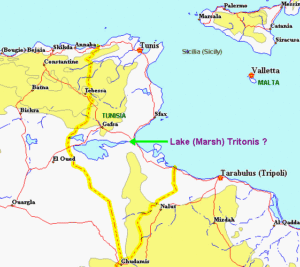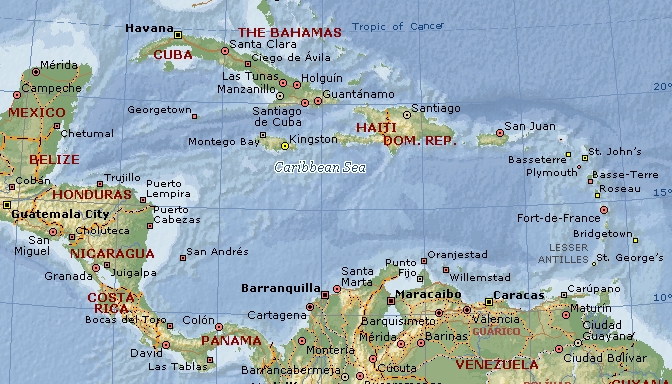classical writers
Winsor, Justin
Justin Winsor (1831-1897) was a distinguished American librarian and  historian and a recognised authority on early American history. In volume one of his eight-volume Narrative and Critical History of America [1673] he began his lengthy dissertation with a chapter on the geographical knowledge of the ancients. With regard to Atlantis, having discussed it at length and despite quoting a string of classical writers who accepted the existence of Atlantis and just a few with a contrary opinion, he concluded that Plato’s story of a lost civilisation was just a literary myth.
historian and a recognised authority on early American history. In volume one of his eight-volume Narrative and Critical History of America [1673] he began his lengthy dissertation with a chapter on the geographical knowledge of the ancients. With regard to Atlantis, having discussed it at length and despite quoting a string of classical writers who accepted the existence of Atlantis and just a few with a contrary opinion, he concluded that Plato’s story of a lost civilisation was just a literary myth.
Lake Tritonis
Lake Tritonis is frequently referred to by the classical writers. Ian Wilson refers to Scylax of Caryanda as having “specifically described Lake Tritonis extending in his time over an area of 2,300 km2.“ He also cites Herodotus as confirming it as still partly extant in his time, a century later, describing it as a ‘great lagoon’, with a ‘large river’ (the Triton) flowing into it.[185.185]
Lake Tritonis was considered the birthplace of Athene, the Greek Goddess of Wisdom, after whom Athens is named. The exact location of the lake is disputed but there is some consensus that the salty marshes or chotts of central Tunisia and North-East Algeria are the most likely candidates. It appears that these marshes originally formed a large inland sea connected to the Mediterranean but due to seismic activity in the area were cut off from the sea. Diodorus Siculus records this event in his third book.
I should also mention that Lake Tritonis along with the Greek island of Lemnos and the river Thermodon in northern Turkey, now known as Terme Çay, have all been associated with the Amazons(d).
Edward Herbert Bunbury, a former British MP, included a chapter(a) on Lake Tritonis in his 1879 book on the history of ancient geography [1531.v1.316]+.
geography [1531.v1.316]+.
In 1883, Edward Dumergue published[659]+ a brief study of the Tunisian chotts, which he concluded were the remnants of an ancient inland sea that had been connected to the Mediterranean Sea at the Gulf of Gabes.
Lucile Taylor Hansen in The Ancient Atlantic[572], has included a speculative map taken from Reader’s Digest showing Lake Tritonis, around 11.000 BC, as a megalake covering much of today’s Sahara, with the Ahaggar Mountains turned into an island. Atlantis is shown to the west in the Atlantic.
In 1967 Egerton Sykes published a paper entitled The Sahara Inland Sea in which he describes a vast inland sea of ‘remarkable proportions’ and “is attested not only by classical references but also by the fact that beneath most of it lies a layer of brackish water ranging from 200 to 500 feet below the ground. The various oases are believed to be located on patches where the depth is only about 50 feet, conducive to plant survival. The climatic change seems to have happened quite recently, around 5000 BC. B.C., since the classics contain numerous references to its [the inland sea] existence.”(e)
I should mention here that the Atlantis theory of George Sarantitis is entirely dependent on extensive inland waterways including the chotts of Tunisia and Algeria as well as a number of other large lakes and rivers in what is now the Sahara.
In modern times, Alberto Arecchi has taken the idea further[079] and suggested that the inland sea, where the chotts are now, was the original ‘Atlantic Sea’ and that the city of Atlantis was situated on an extended landmass to the east of Tunisia and connected to Sicily due to a lower sea level. Arecchi’s identification of the chotts with Lake Tritonis has now been adopted by Lu Paradise in a May 2015 blog(c). The Qattara Depression of Northern Egypt also contains a series of salt lakes and marshes and is believed by others to have been Lake Tritonis.
Cindy Clendenon is the author of a book [801.397] on hydromythology in which she concludes that “the now-extinct Lake Tritonis once was a Cyrenaican lagoon-sabkha complex near today’s Sabkha Ghuzayyil and Marsa Brega, Libya”(b),> not in Tunisia! Clyde Winters also placed Lake Tritonis in Libya(f).<
[659]+ https://archive.org/details/chottstunisorgr01dumegoog
[1531.v1.316]+ https://archive.org/stream/historyofancient01bunb#page/n6/mode/1up/search/Tritonis Vol.1
(a) https://www.argonauts-book.com/lake-tritonis.html
(b) https://www.abebooks.com/9780981842103/Hydromythology-Ancient-Greek-World-Earth-0981842100/plp *
(d) https://www.myrine.at/Amazons/mobilIndex.html
(e) The Saharan Inland Sea – Atlantisforschung.de (atlantisforschung-de.translate.goog) *
(f) https://africanbloodsiblings.wordpress.com/2013/11/21/fertile-african-crescent-by-clyde-winters/ *
Caribbean
The Caribbean Region with the many islands of the West Indies is favoured by a number of authors who find in the writings of classical writers evidence of very early knowledge of the islands in the western Atlantic by the peoples of the Mediterranean. As a source, these ancient authors have to be treated with great care, as so much of the historical and geographical details are at best second-hand and sometimes just conjectural if not fictional. This is compounded by the fact that so many of these early writers borrowed from each other so that an early ‘fact’ that is erroneous could be transmitted unchecked for centuries if not permanently.
 The seas around many of the Caribbean Islands are quite shallow indicating that during the last Ice Age the exposed land area must have been considerably larger. If Atlantis existed in this region there are many candidate locations.
The seas around many of the Caribbean Islands are quite shallow indicating that during the last Ice Age the exposed land area must have been considerably larger. If Atlantis existed in this region there are many candidate locations.
>Geoffrey Ashe noted that in the 5th century, the neo-Platonist Proclus, quoting a 1st century BC geographer named Marcellus, spoke of three islands of ‘immense extent’ located in the Atlantic Ocean. The inhabitants of the centre of these islands were said to have preserved the memory of a former landmass, identified by Proclus with Atlantis, which had existed thereabouts. In 1962, in Land to the West [740] historian Ashe identified Marcellus’ three great islands with the Greater Antilles of the Caribbean. Moreover, he pointed out that the indigenous peoples of the region preserved the memory of a cataclysm, which had split up a former landmass leaving behind the islands that make the archipelagos, which we have today. All but a few human beings were drowned in this all-encompassing event. Could this have been a memory of the destruction of Atlantis preserved in the Caribbean and brought across the Atlantic by ancient mariners such as the Phoenicians and Carthaginians?<
>Atlantisforschung has drawn attention to the work of Harold T. Wilkins who, in 1952 had pointed out the mythology of the islanders of the West Indies in Secret Cities of Old South America [364], and in particular to the almost astonishing similarities between West Indian-Caribbean and Irish myths. Wilkins also noted: “In the hinterland of the British West Indies island of Trinidad, the Natives of Aboriginal origin affirm that Trinidad is a very old country, and formed part of ‘the greatest country in the world’ many thousands of years ago. This was a time ‘when there was no sea at all’. This large, antediluvian country or continent is called IERE by the natives, which is pronounced almost exactly like EIRE for Ireland. And ancient Trinidad too, the natives say, was known as Iere before the great cataclysm that sank the lost continent” (e).<
>Gonzalo Fernández de Oviedo y Valdés writing in the 16th century[1117] considered the Antilles in the Caribbean to have been the legendary Isles of Hesperides. Andrew Collins also identified Cuba as one of the Hesperides.<
An American researcher, Amy Smith, has produced a website claiming that Atlantis had been located on a now demolished landbridge linking Cuba with the Yucatan Peninsula, in the Caribbean and was destroyed at the end of the last Ice Age when the Mississippi was dramatically swollen by meltwater from the retreating glaciers and poured into the Gulf of Mexico, which was then an enclosed sea. This in turn led to the breaching of the landbridge linking Cuba and the Yucatan Peninsula and the destruction of Atlantis in its vicinity. Smith has recently expanded on the events leading to the destruction of Atlantis(b).
Edgar Cayce’s followers in A.R.E. have focused their attention on the Bimini sector of the Bahamas, although Greg Little opted for a location just north of the Isle of Youth off Cuba. Andrew Collins is also convinced that Atlantis was in located near the Isle of Youth, while, more recently, Norman Frey has added his support to the same locality. Mel Fisher claimed to have found Atlantis in the vicinity of Cuba but failed to reveal the exact location before his death. The Italian researcher, Emilio Spedicato, has chosen the nearby island of Hispaniola.
Gábor Bihari, the Hungarian researcher, submitted a paper to the 2008 Atlantis Conference outlining his view that Plato’s Atlantis story was loosely based on reports of a very ancient empire in the Caribbean brought back to Europe by refugees from there after it was inundated at the end of the last Ice Age.
Peter Marsh is a keen diffusionist with a particular interest in the peoples of the Pacific(a). However, this has not precluded him from looking at the Atlantic, where he concluded that the Azores were most likely to be remnants of Atlantis based on Plato’s description. Despite this Marsh published a paper on the Atlantisforschung website unexpectedly entitled The Golden Age – Atlantis in the Caribbean(d).
In December 2009, we were subjected to one of the periodic claims that Atlantis had been ‘found’, this time in the Caribbean. Poor-quality images were offered as evidence of a submerged city. While it is understandable that the discoverers might be reluctant to disclose the exact location, it is more difficult to understand why they were equally unwilling to disclose their own identities. They also claimed, without evidence, that the structures predated the pyramids of Egypt. Funds are now being sought for a fully-fledged expedition.
Jay/Brad Yoon offered support for a Caribbean Atlantis in a short 2012 book, Atlantis Shrugged[1371], in which he claims that a dry Caribbean Basin, 13,000 feet below sea level, was home to Atlantis, but the surrounding ring of mountains retaining the ocean was shattered by an earthquake and flooded Atlantis.
Dr. P.P. Flambas joined the Caribbean supporters in December 2016, with the publication of Plato’s Caribbean Atlantis[1368], a huge tome of over 900 pages.
Even more startling is the wild suggestion that Antigua, one of the Caribbean’s Leeward Islands, in an hour-long YouTube video(c) may have been Atlantis. This rambling, often boring, film offers no real evidence apart from some megalithic features, the likes of which have been found around the world.
In 2019, Eddie Weaver published a short Kindle book, The Antediluvian Signature: Atlantis [1724]. In it, he claimed that a site some miles south of Jamaica, known as Pedro Bank, was the location of Atlantis. He endeavours to support his claim with a subjective interpretation of a lot of Google Earth imagery.
(a) https://web.archive.org/web/20190922053225/https://www.polynesian-prehistory.com/
(b) https://web.archive.org/web/20131019085533/https://www.losthistorypublishing.com/Atlantis.html
(c) https://www.youtube.com/watch?v=Kx6h5qk27Sw
(e) Iere – Das Atlantis der Kariben – Atlantisforschung.de (atlantisforschung-de.translate.goog) *
